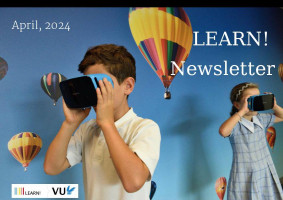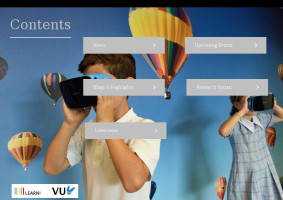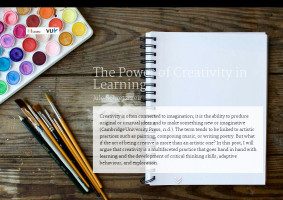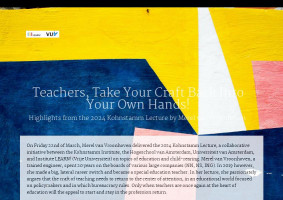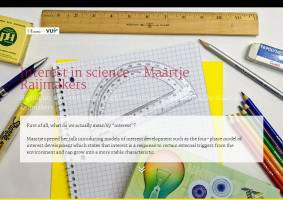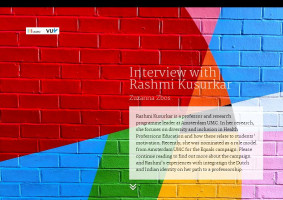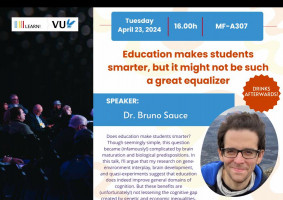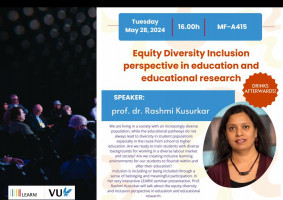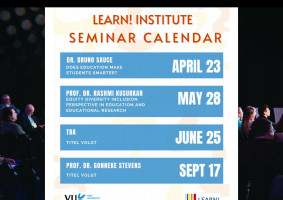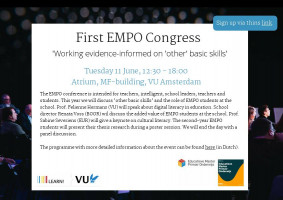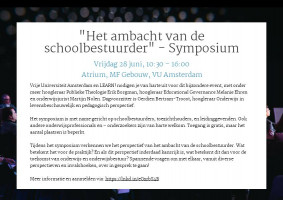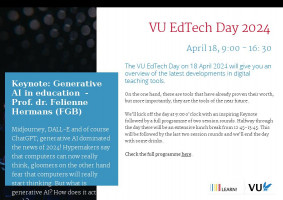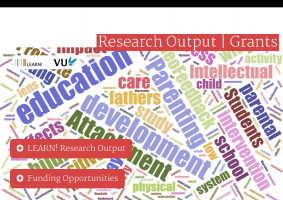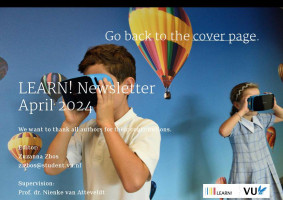Please continue reading to find out about the latest news from our Institute.
Highlights:
- Carlo Schuengel made a visit to the Representations of Early Experiences Lab at NYU Abu Dhabi
- Elsje van Bergen will give a keynote at the International Conference of the British Dyslexia Association
- Rashmi Kusurkar nominated as a role model for the Equals campaign
- Melanie Ehren will join a team from the Autonomous University in Barcelona to work on an ERC-funded proof of concept grant
(2)_w440_h442_1.png)
As part of the ongoing collaboration by members of the LEARN! Child Rearing Program, Carlo Schuengel was invited to visit the Abu Dhabi campus of New York University. Here, Theo Waters and his team work on developmental and cognitive research to explain enduring effects of early experiences. One of the projects that we collaborate on is focused on Secure Base Script Knowledge as manifested in the Adult Attachment Interview, an NIH-funded project led by Glenn Roisman (University of Minnesota) with Theo Waters, Chantal Cyr, Marije Verhage, and Carlo Schuengel as co-PIs. Stefania Vacaru, former VU student and research associate at LEARN!, recently joined Theo’s lab to develop research on psychophysiology, attachment, and caregiving, with a special interest in families with children with a disability. Carlo gave a seminar lecture on work from Mirte Forrer’s PhD-project (advisors Oosterman and Schuengel), titled “Minimal measures of parental caregiving: Sensitivity is all you need?” and had an opportunity to sample some of the local flavours. Later this year, Paula Sterkenburg will visit NYU Abu Dhabi as well, strengthening this valuable collaborative relationship.
More information about the Representations of Early Experiences Lab at NUY Abu Dhabi can be found here: https://www.waterslab-psych-nyuad.com/
news from the Learning Sciences program:
- Nina Sangers started as assistant professor within the group. Her research focuses on reading motivation and reading comprehension
- Ilja Cornelisz gave a keynote speech at the NRO conference. You can read the abstract here.
- Anni Sapountzi finished her dissertation, and will graduate on May 22nd with her dissertation “Automatically assessing student mastery and designing optimal stopping policies: A Bayesian approach”. Congratulations!
NEWS FROM THE educational neuroscience PROgRAM:
Dr. Elsje van Bergen will give a keynote at the International Conference of the British Dyslexia Association in June. A special Q&A was published on their website, where van Bergen reveals why she loves science, what she hopes will be researched, and what her special hobby is.
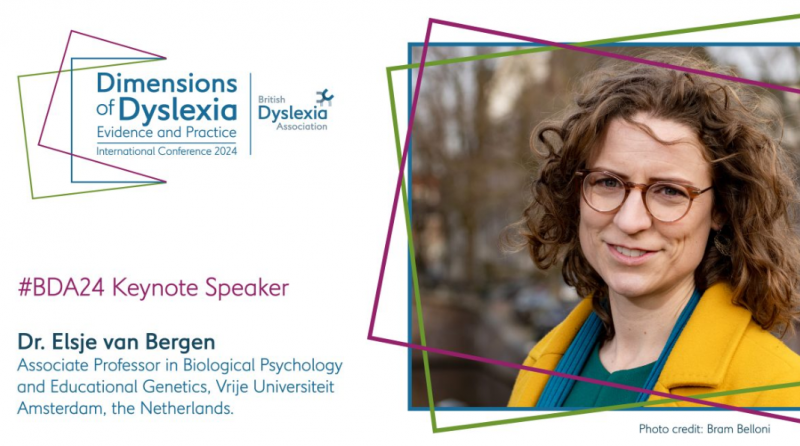
news from the motivation for lifelong learning program:
Since November 1, 2023, Prof. Dr. Rashmi Kusurkar, professor of diversity and inclusion at Amsterdam UMC and VU Amsterdam, has been chairman of the NVMO, the Dutch Association for healthcare educators.
The NVMO conference is one of the annual highlights of the association, which has 1,400 members. This year's theme is: Equal opportunities in healthcare education. Rashmi Kusurkar: 'After all, the theme is close to my heart. As chairman I can take care of the opening and that is quite exciting because this theme is very current and can also be uncomfortable for conference visitors. It is the first time that I have told my story on a stage in front of so many people (last year there were 1100 participants). I took Dutch lessons again last year with a personal trainer, so if this works, it will be a personal victory," she says laughing. 'That will certainly not go smoothly; That is my most important message: it is okay to make mistakes.'
Rashmi Kusurkar is also one of the 150 participants in the role model campaign Equals 2024 and has her own billboard in Amsterdam. You can read more about the campaign and Rashmi's research on equality in her interview for Learn!.
news from the educational governance program:
Professor Melanie Ehren will join a team from the Autonomous University in Barcelona to work on an ERC-funded proof of concept grant to develop a project on ‘ Towards Shared Accountability: Rethinking the Locus and Scale of Assessment and Improvement in Education’. The project will build on ongoing work to develop new accountability practices for educational networks and test these in other contexts, including Spain.
A brief summary of the project:
Accountability has emerged as a central feature of educational governance worldwide. However, the prevailing accountability approach in education, the so-called performance-based accountability (PBA), has led to adverse effects and discomfort among key stakeholders in the education sector. PBA, with its focus on individual schools as primary account providers, intensifies competitive pressures, fosters institutional fragmentation, and often stigmatizes disadvantaged schools. Recognizing these drawbacks, several governments are in the process of re-evaluating their accountability frameworks; this entails not only adjusting the measurement of performance outcomes but also giving greater attention to teaching-learning processes that were previously overlooked.
Despite these efforts, ongoing reforms often overlook a crucial dimension: the scale at which accountability practices occur. ACCOUNTED asserts that optimizing accountability requires not only a shift in focus but also a change in the locus of account-giving practice: from individual schools to broader school networks. This recalibration of accountability, emphasizing shared responsibility among schools within a network, holds the key to fostering meaningful and cooperative relationships, initiating sustained improvement dynamics, and mobilizing additional educational resources at the local level. The effective implementation of this approach necessitates a meticulous policy design that organizes accountability relations and practices within the context of school networks. To bridge the gap between policy and practice, we propose testing and refining the 'shared accountability model' through a participatory design strategy involving real school actors. This innovative approach, by fostering collaboration and awareness among schools within networks, holds the potential to bring about positive transformations across the entire educational system, with a specific emphasis on advancing the well-being of disadvantaged schools.
